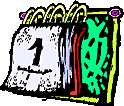With The Commentary of the RABAM


Rabboisai,
This week I respond to two separate but related questions. Indeed,
the old adage must be rewritten: Lightning CAN strike twice,
especially when we are talking about minuvals.
(Minuvals = scoundrels)
Adrian G. writes:
“Dear Abbey (I mean Rabbey):
“As you are aware, some of us have a fondness for shrimp that we try
to repress. However, once in a while, I am tempted to go to the
local Red Lobster. What bracha should I make on these rare
occasions?”
(Shrimp = a delicious sea creature that goes particularly well with both cocktail sauce and garlic butter.
Cocktail sauce: half a cup ketchup, quarter cup plain tomato sauce, two
tablespoons lemon juice, half a tablespoon each: Worcestershire sauce,
hot sauce, horseradish. Salt, pepper, and some chopped parsley. Mix
well, chill, serve.
Bracha = blessing; types of food have their own blessing, as do several
other things, including natural phenomena, and ritual actions.)
The other letter comes from a schmendrick who did not sign his name,
providing only an e-mail address. What do you think—if you come
in front of Hakkadoshboruchhu, the Melech Malchei Hamelachim, on
Yoim Kippur and provide your e-mail address, He will accept your
teshuva? Have you ever heard anyone called up to the Toirah for an
Aliyah: “Ya’amoid Longpayis@AOL ben Pishvasser12@MSN, Reviyi”?
Minuval.
(Shmendrick = not quite a moron, but very near to being worse than, in
that even with only half a brain switched on, the moving parts clank
audibly.
HaKadoshBoruchHu = The Holy One, Blessed be He.
Melech Malchei HaMalechim = The King of Kings, the utter kingness; G-d.
Yom Kippur = this year on October 13th, 2005. The day my midlife
Crisis starts in earnest, on which I turn 46 years...., I mean, the day of atonement, on which we fast for an entire day, not eating even a
Smidgen of chocolate cake, oy.... !
Teshuva = return, repentance.
Called up for an Aliyah = There are 54 parshas (chapters) to the Torah
(the Pentateuch), each parshas is divided into seven aliyos, each aliya
representing a discrete unit of thought or sequence of events or
statements. For each of the aliyos of the parshas read in shul that
Sabbath, a person is called up to do the (leyning) reading. It is a
great honor for the reader, and insufferable torture for others, as the
Torah text is unpointed (vowel marked), and the poor shmo ( = rich
patron of the shul) called upon guesses wildly at the proper
pronunciation.
Reviyi = Fourth, referring to the aliyah which Longpayis, son of Mr.
Pishvasser, will be reading, being number four out of seven. There are
still three more aliyos after this! No wonder people make kiddush in
the vestibule!)
In any case, BugXX.com writes (incidentally, the spelling and
punctuation below are his):
“Dear rav Shmeckelstein,
“I have seen your divrei toraha nd have to ask you a question I am
too affraid to ask my rav at beit knesset.
(Divrei Torah = words elucidating the Torah. Rav = Rabbi, lord,
teacher. Beit Knesset = Bais Knessis; the house of assembly,
synagogue.)
“Sometims I forget to make a bracha in eating. I know the brachot
are supposed to be said before eating, but often the food is in my
mouth before I remember, and sometimes I have even started chewing.
From time to time I even swallow a mouthful as well before I
remember I forget to make a bracha.
(Brachot = Braches, blessings, benedictae.)
“so What to do? I feel I ought to maka a bracha as soon as I
remember, even if I have already swallowed some, but it’s not nice
with a mouthful.
(The answer to this question is determined by the size of that which he
swallowed. Rav Yossi holds that if it is a kebeitsa (a quantity of the
size of an egg), then he is obligated to hold a finger down the throat
until the matter has been brought up, but if it is a kezeyis (a
quantity of the size of an olive) or less, there is no need. Rav Ashi holds farkert, everything must be brought up three times, and he must wait till after nightfall before continuing his meal.)
“I await your paskening on this and wonder if your psak is
applicable to any other situations tat we might learn from as well.”
(Paskening = rendering a Halachic decision, opinion, or judgement.
Psak = in this context, judgement.
Well, BugXX.Com, I am not sure if what you need is a Psak Halacha,
or a few weeks back in grammar school. According to the RITVA, the
only thing the Rebboinoisheloilum likes less that someone who does
not show appreciation for His creations (through the making of
brachois) is someone who does not show appreciation for the written
and spoken word. After all, language IS what separates us from the
animals, you behaima.
(Psak halacha = Opinion in Jewish law.
Ritva = Rav Yomtof Ibn Asevili (Seville, between 1350 and 1450 CE), a
disciple of the Ra’ah (Rav Aharon Ha Levi, b. 1235, a Talmud commentator) , and a major posseik in his own right. His poskening are
sharp, subtle.
Ribono Shel Olam = G-d, Master of the Universe, the host whose guests we are.
Behaima = One of the higher organisms (Hebr.), flesh and blood whose
potential is fully realized. A beast, a wild animal, a creature, a
cossack.)
And as for you, Adrian G., how can I answer your question when I
don’t know if you are a man or a woman? What kind of name is Adrian?
What should I tell you if making a bracha on shrimp is a Mitzvas Asei
She-Hazman Gramma, a commandment applicable to men but not to
women? “Okay—look in the mirror. If you see two double-d-sized
kneidlach on your chest, please disregard the following...” Doesn’t
work.
(Mitzvas asei = a positive commandment. Mitvas asei she hazman grama =
Positive commandments which have a time component (Ha zman: of time),
which men are obligated to perform, but from which women are mostly
exempt.
Kneidlach = Kneadables. The term for a type of dumpling, a matze ball
to end all matze balls.)
Nisht geferlach. For the sake of Toiras Moishe, I will set aside
these concerns and address your issues one by one.
(Nisht geferlach = Literally ‘not dangerous’ (gefehr = danger, risk).
But used to mean: “no biggy, dude, what-ever!”
Toiras Moishe = The Laws of Moses. What did you think you were reading
about all this time? You subscribed to this, did you not? Nu? Sitzt
recht-oyf, und shluff nit, malut!)
Meilah, the issue of Brachois is complex, not the simple topic as it
is portrayed for every school aged child. Klal Yisroel has been
using some form of tefillah to communicate with the Aimishteh since
Bayis Shaiynee, the Second Temple. This, of course, reflects an
effort to reduce the management fees that went to the koihanim, the
descendants of Aharoin Hacoihain, thereby reducing their monopoly of
facilitating all interaction with the Rebboinoisheloilum through the
provision of services in the Bais Hamikdash.
(Meilah = Falsehood, theft, tresspass. Used here as a warning and for
emphasis.
Klal Yisroel = all Jewry. Tefillah = prayer.
Aimishteh = A pronunciation of the tetragrammaton (YHVH) better than
Any other (the actual pronunciation being off limits!), which has the sense of ‘where is HE when you need him?’.
Bais HaMikdash = The Temple in Yerushalayim, where other than in the
Ezras Nashim (the women’s enclosure), the Koheinim were the only ones
free to move about.)
With regard to Brachois themselves, there is a famous machloikess—
Rabbinic debate—between Bais Hillel and Bais Shammai in a Mishnah
in the second Perek of Maseches Brachois. According to Bais Hillel,
one is supposed to make a Bracha, a benediction, prior to the first
bite of food, as a sign of appreciation to Hakkadoshboruchhu for
providing the meal, and then may proceed with eating the entire
meal. However, according to Bais Shammai, one is required to make a
Bracha before every bite, as a sign of appreciation to the
Rebboinoisheloilum for providing every morsel. As in most other
disputes between Bais Hillel and Bais Shammai, we don’t hold
according to Bais Shammai, as most of Shammai’s students could not
pass along their learning because they all choked to death.
(Machlokes = argument, dispute, strife. The best kind is machlokes le
shem shamayim, argument for the sake of heaven (for the sake of truth),
which is a blessing. But those machlokes which are merely a quarrel
are a curse - and don’t you DARE disagree! Ever!
Perek = a chapter, a minor book; also a set or time or specific event.
Maseches brachois = the tractate of the Talmud that starts with
blessings, in the order of zeraim (seeds; there are six orders to the
Mishna, which is the basis for Talmud, and likewise the Gemara, which is the further development of Talmud)
The Gemarrah addresses this specific debate. Asks Abaya: Why do we
have to make so many Brachois everyday as a means of expressing our
thanksgiving? Why can’t we simply send the Aimishteh a nice thank
you note every once in a while, or maybe organize an annual parade?
(Gemara = The Learning or The Study (Aramaic term). Analytic
commentaries in Aramaic on the Mishna (The Repetition) by the Amoraim
(teachers) of the academies in Babylon and the Holy Land in the
centuries after the destruction of the temple.
Abaya = (d. 338) head of the academies at Sura and at Pumbedita, one of
the greatest of Amoraim, who dwelt in Mahozah on the Tigris river.
An annual parade = March 17th would not be a good idea. Purim,
however, was celebrated in several Jewish quarters of pre twentieth century Europe, and there are numerous lovely illustrations of the Purim parade in Amsterdam (known to her denizens as Mokum, or Mokum Alef) in the seventeenth and eighteenth centuries.)
Rava answers in the name of Rav Dimi, who says in the name of Rabbah
Bar Bar Chana, who heard Rav Shayshess once say in the name of
Chiyya Bar Abba, who was quoting Rav Huna in the name of Rish
Lakish, who once overheard a conversation between Abba Bar Abba and
Rav Assi, as they were discussing something that Reb Yehuda Hannassi
once said while having his shoes shined by Rav Yoichanan HaSandlar.
According to Rava, inasmuch as prayer is a substitute for Karbonois,
animal sacrifice, in a world in which we no longer have a Holy
Temple, we must be sure to honor Hakkadoshboruch at every turn,
because He is likely to get angry and bring death and destruction
upon Klal Yisroel, or at a minimum, raise taxes. And since Brachois
are free, “the price is right” according to Rava, and it is a total
win/ win.
(Rava, Rav Dimi, Rabbah Bar Chana, Rav Sheshes, chiya Bar Abba, Rav
Huna, Rish Lakish, Abba Bar Abba, Rav Assi, Yehuda HaNasi, Yochanan
HaSandlar = these are all sages of the Talmud, whose argumentation back
and forth on multiple points is often cited in detail, even though
their actually being in the same place at the same time would have been
impossible. Talmudic conversations in actual fact ran parallel to each
other rather than sequentially, over a period of sometimes months or
years.
In the name of, etc. = Rabbi Elazar said, in the name of Rabbi
Chanina:” He who says something in the name of the one who said it brings
redemption to the world, as it is written: “and Esther said to the
king, in the name of Mordechai (Megillas Esther 2:22: vatomer Ester la-melekh beshem Mardokhai).
Now note that the entire ‘he said she said’ passage above is a familiar
style of preamble to a statement, in both Judaism and Islam (in which
it is termed Isnad, meaning a attributive chain of reports or reporters,
and a distinction is made between chains with weak links (the source is
doubtful or cannot be vouched for) and chains with strong links (each
person cited is entirely trustworthy, and his statement is
substantiated).
Yochanan the shoemaker (ha sandlar) is strong substantiation.)
A Ma’aseh Shehoyo. Reb Yisroel Salanter was once studying in his
Bais Medrish in Kovno late an night when the beautiful cleaning
woman stuck her head in. “Rabbi,” she said, “can I interest you in a
some mushed up banana?” “Of course,” responded Reb Yisroel. A few
minutes later the cleaning woman was hanging upside down on Reb
Yisroel’s shtender, as he proceeded to devour the mushed up banana.
(Ma’aseh shehoyo = a true tale as an illustration.
Rabbi Yisrael Salanter = the Kovner (1810 - 1883), a Lithuanian scholar
and master of musar (moralistic interpretation of Torah-Talmud).
Kovno = Kaunas; a town in Lithuania raped and leveled over a dozen times by Russians, Prussians, Poles, Swedes, Litvaks, and Germans, since its
founding over nine hundred years ago. From 1795 onwards it was part of
the Vilna Guberniya of Russia. On May 18th, 1915, Prince Nikolai
ordered the forced expulsion of all the Jews of Kovno by the military
and the police, and their deportation to the east. They returned after
the war, by which time Kovno was in Lithuanian hands.
Shtender = reading stand, lectern.)
After the fourth lick, Reb Yisroel screamed out in a loud
voice, “Uchinvei, I’ve forgotten to make a bracha!” His outcry,
muffled as it was, reached the heavens. Suddenly, a Bas Kol, a
heavenly voice, came down from the heavens, “Reb Yisroel, I’ll take
a Ha’adamah for the banana, and an Oisay Ma’asaiy Beraishis for the
hot shiksa. And don’t bother with a shehakol for the gefilta fish.”
(Uchinvei = Och und vei (alas and sorrow!), an exclamation of distress.
Bracha = the requisite blessing.
Bas kol = the daughter of a voice, an echo, Hashem’s customary method of communicating with mortals.
Ha’adamah = the blessing for the fruits of the earth, vegetables, etc.
(Baruch ata Adonai Eloheinu, melech ha-olam, borey pri ha’adamah.
Blessed are You lord our G-d, King of the world, creator of the fruit
Of the earth). The blessing for fruit that grows on trees is not
appropriate for bananas, because a banana palm is actually not a tree,
but a flowering herb, and having fruited, it dies. Oseh ma’asey
bereishis = “(He who) makes creation; the blessing said upon observing
something of natural beauty. Shehakol = The blessing that can be said
over many foodstuffs, a generic blessing. (Baruch ata Adonai Eloheinu,
melech ha-olam, shehakol nihayah b’dvaro - Blessed are You lord our
G-d, King of the world, by whose word everything is created).
So, we should never miss an opportunity to express appreciation for
enjoying the Aimishteh’s creations. When we are eating. When we wake
up in the morning. When we go to the bathroom. When we hear thunder
and see lightning. When we realize that, Boruch Hashem, we are not
women.
And we are compelled to express our appreciation to
Hakkadoshboruchhu, even when the moment is sub-optimal. Even if we
are running a little late. Even if we forget at first and only
remember after the third bite. And even if we are eating a little
Traifus when the wife is out to town. After all—He created shrimp
as well.
(Traifus = food which is not ritually clean, though it may be very
edible. And shrimp is excellent. Shehakol.)
Ah Gutten Shabbos You Minuval



